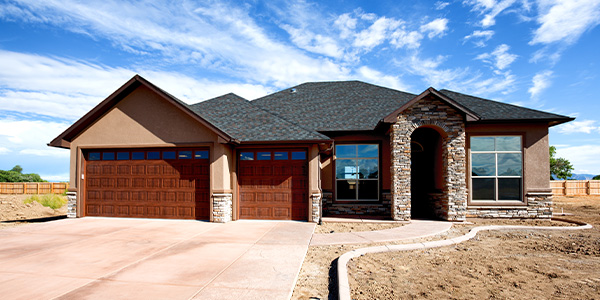Homebuyers
New Conforming Loan Limits for Conventional Loans in 2020
January 7, 2020
As we begin the year, those looking to buy a home or refinance their existing property should take note of some important changes to Conventional Loan limits. But before we examine these increases and their potential impact on homebuyers, let's take a look at what are Conventional Loans and why they are conforming loans.
What is a Conventional Loan?
A Conventional Loan is not insured or guaranteed by a government program such as the Federal Housing Administration (FHA), United States Department of Agriculture (USDA), or the Department of Veterans Affairs (VA) Loan programs. (Loans that are insured or guaranteed by the government are called Non-Conventional Loans.)
Conventional Loans follow guidelines set by Fannie Mae and Freddie Mac, two government-sponsored entities formed by Congress to purchase the loans made by lenders. The majority of home loans are processed with a Conventional Loan. There are two types of Conventional Loans: conforming and non-conforming. Conforming loans meet guidelines established by Fannie Mae and Freddie Mac. However, non-conforming loans do not meet these guidelines, nor can they be purchased by Fannie Mae or Freddie Mac.
How is an FHA Loan different than a Conventional Loan?
2020 Conforming Loan Limits
In November 2019, the Federal Housing Finance Agency (FHFA) announced the 2020 maximum conforming loan limits for mortgages to be acquired by Fannie Mae and Freddie Mac. Effective January 1, 2020, the baseline loan limit for a single residence in most counties across the U.S. will be $510,400—up from $484,350. In most high-cost markets such as New York City and San Francisco, the new loan limit will increase to $765,600 from $726,525 in 2019.
Any loan above these maximum amounts would be considered a Jumbo Loan. (This is also a non-conforming loan since it does not meet the loan requirements of Fannie Mae or Freddie Mac and has different underwriting guidelines.) Rather, they are funded by private lenders or private institutions.
How the New Loan Limits May Benefit You
The Housing and Economic Recovery Act (HERA) requires that the baseline conforming loan limits be adjusted each year to reflect the change in the average U.S. home price. With more money to spend, Conventional Loan borrowers can choose from a wider selection of homes to purchase, plus stay competitive against other prospective homebuyers in the bidding process.
Overall Advantages of Conventional Loans
If you're considering a Conventional Loan, a variety of benefits await you:
- Down payments as low as 3%
- Fewer restrictions compared with government-back loans, such as no military affiliation (VA) or rural area (USDA) required
- No upfront mortgage insurance required
- Private Mortgage Insurance (PMI) can be canceled after 20 percent equity is achieved.
- Higher credit scores can result in a lower interest rate
- Less strict appraisal and property requirements than FHA, VA, or USDA loans
- Loan processing is often faster
- Term lengths can vary between 10 and 30 years
Looking for a loan that's right for you? Whether it's a Conventional Loan or another loan that meets your life situation, a New American Funding Loan Officer would be glad to help answer your questions and help you move into the home of your dreams. Let's talk!





 Smart Moves Start Here.
Smart Moves Start Here.